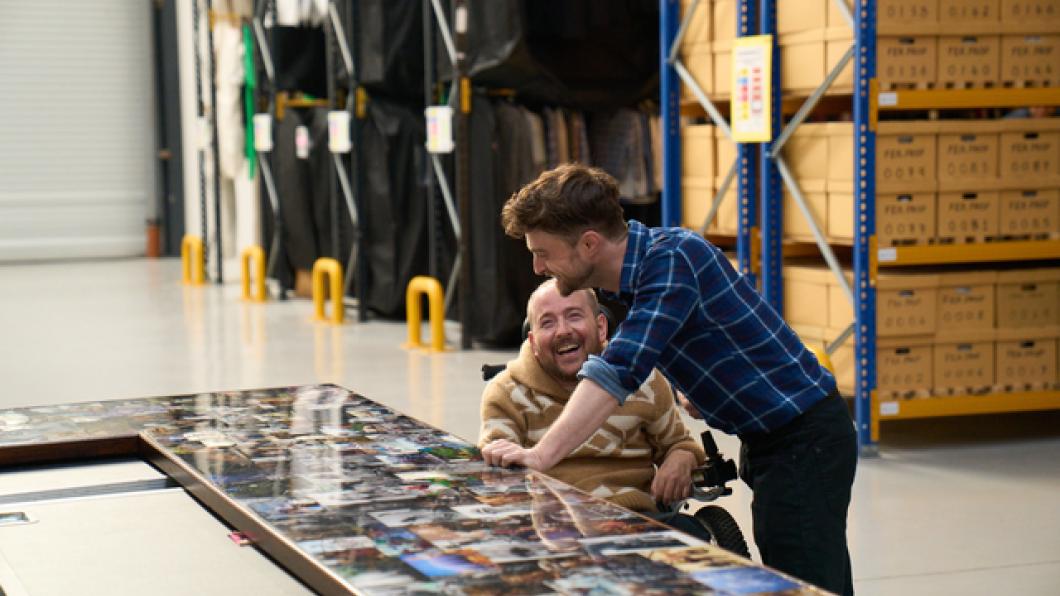
'Indestructible' Harry Potter stuntman adapts to life in a paralyzed body
By Louise Kinross
Last night I watched the new HBO documentary about Daniel Radcliffe’s stunt double on the Harry Potter films: David Holmes: The Boy Who Lived.
You may have seen the trailer.
David was a teen gymnast hired to do dangerous stunts for then 11-year-old Daniel in 2000. Ten years later, after the two are best mates, David breaks his neck during a rehearsal stunt for Harry Potter and the Deathly Hallows Part 1. He's paralyzed from the chest down.
The stuntman, described as 'indestructible' by his crew, faces gruelling rehab. Just as he’s adapting to his new life in a wheelchair, he develops a cyst in his spine which necessitates many difficult operations, including a brain surgery. Complications set him back, and lead to further loss of ability in his arms.
Support from his Harry Potter friends and family sustains him. A friend becomes an indispensable personal support worker.
But other than one scene where he and another rehab patient are in wheelchairs, the film focuses on his relationships with nondisabled people.
I wanted to know whether he made connections over the years with other disabled folks. Surely he got to know other people with spinal-cord injuries who were further along the path he was on? How did that stretch his mind?
Does he ever talk to newly injured patients to offer support?
During rehab there’s a scene where Daniel and a woman who I assumed was David’s girlfriend are playing a game that involves stuffing as many marshmallows into their mouths as possible. What ever happened to David’s girlfriend? We don’t hear. What is his romantic life like as a disabled person? There’s no mention of that.
There's a scene where he returns to his old gym to encourage up and coming young athletes. Does he ever visit adapted gyms designed for people with disabilities?
Another scene is at an annual cricket fundraiser he runs for the hospital where he did his rehab. In this setting he's filmed as the lone disabled person.
Did David embrace the disability community and culture after his accident? If so, what did he get out of that?
Does he ever bring friends from the two worlds together?
How have his thoughts about human value evolved? He does make one comment about how his new life is about "being present," rather than being cool.
A review in Rolling Stone notes: "Both Radcliffe and Holmes are executive producers of the doc, which subsequently feels extremely authorized. This is a film in which the principals seem to control the flow of information and the tone. It's not an uncommon exchange--access for creative autonomy. And the main players seem like good people. But The Boy Who Lived lacks the complexity and frisson that might have set it apart in an increasingly crowded documentary field, or pushed it beyond its feel-good parameters."
What did you think? Leave a comment!
Like this story? Sign up for our monthly BLOOM e-letter. You'll get family stories and expert advice on raising children with disabilities; interviews with activists, clinicians and researchers; and disability news.